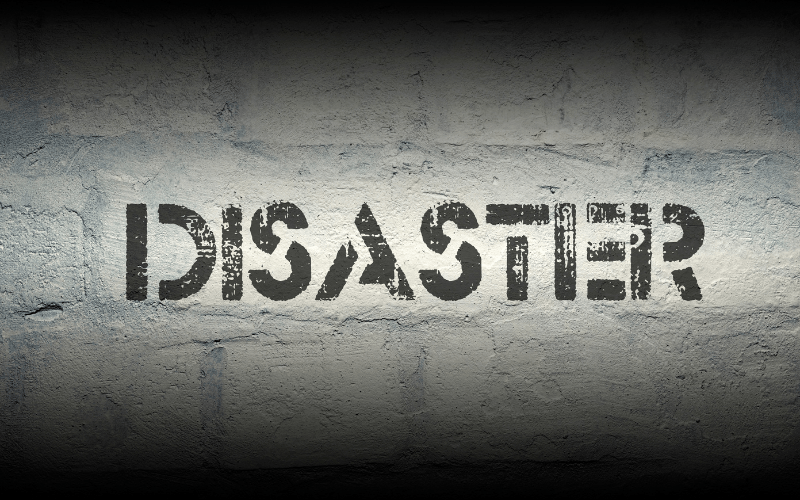EMDR Therapy for Grief and Mourning
Guest Blog Post by Roger Solomon, PhD
Tell us a little bit about you, your experience becoming an EMDR therapist, and your experience working with grief.
I am a psychologist with expertise in trauma and grief. I learned EMDR therapy in 1990, and in 1993 I was fortunate to be one of the original thirteen therapists selected by Dr. Francine Shapiro to be a trainer for the EMDR Institute. I am proudly still working with the EMDR Institute as a Senior Faculty member and Program Director. I have worked extensively with first responders including working with families of responders killed in the line of duty. I provided trauma and grief EMDR interventions following incidents such as the Oklahoma City Bombing, the September 11 terrorist attack, the Shuttle Columbia tragedy, mass shooting incidents, and numerous line-of-duty death events (including working with surviving family members). Currently, along with training internationally, I am a consultant with the U.S. Senate, a visiting professor with Salesians University in Rome, Italy, and I provide online and live training and EMDR therapy sessions in Ukraine. I have published over 50 articles and book chapters pertaining to EMDR therapy and authored the book EMDR Treatment for Grief and Mourning: Transforming the Connection to the Deceased Loved One (2024, Oxford Press).
How can EMDR therapy help the grieving process? What successes have you seen?
First, let’s define some terms. Grief is our response to a loss (emotional, cognitive, physical) and mourning is the process of adapting to the loss. The death of a loved one can be traumatic especially when the death is sudden, unexpected, and involves violent circumstances. As a result of the trauma, negative memories may be maladaptively stored, unable to fully process. Consequently, thinking of the loved one evokes traumatic moments and anguish over the loss, which complicates the mourning process.
The goal of EMDR therapy is to treat the trauma of the loss and facilitate adaptive progression through the mourning process. Processing the trauma of the loss, initially focusing on the moment of traumatic impact or realization of the loss (e.g. getting the news, hospital scenes, funeral moments) enables adaptive information to link in, which often are heartfelt memories and meaningful moments. This gives the mourner a sense of connection to the loved one. The connection/attachment to the loved one does not go away, it transforms, moving from loving in presence when the loved one was alive, to loving in absence, through the heartfelt memories.
Of course, the memories of the deceased may be negative (e.g. abuse, neglect, unresolved conflicts). It is important to identify and reprocess these distressing memories that complicate grief and the mourning process, and resolve the effects of a toxic relationship.
It is important to identify present triggers that interfere with adaptation to the loss and provide positive future templates to help the client adapt to the new world without their loved one.
Are there any specific complexities or presenting concerns that grieving clients face that are unique? How might those affect the EMDR therapy process?
Complicated grief reactions are the result of unresolved previous trauma, losses, and attachment-based memories. Research has demonstrated that attachment orientation accounts for the variance in how people grieve. The death of a loved one can trigger childhood memories related to separation distress, which impacts the present response to loss. Hence when grief and mourning are complicated, and EMDR memory processing is blocked, identify and reprocess previous distressing memories underlying current difficulties.
It is not uncommon for mourners to be afraid of processing their pain and losing their connection to their loved ones. In other words, the connection to the loved one is through pain. As described above, processing the trauma of the loss, and related distressing memories, often results in the emergence of positive heartfelt memories, giving the mourner a sense of connection. It is important to explain EMDR therapy will not take away anything the client needs, or that is true. Explain to the client that EMDR often results in meaningful memories that give the client a positive sense of connection. These emerging positive memories form an adaptive inner representation that helps the client adapt to the loss.
Are there cautionary measures you would like to mention regarding the use of EMDR therapy and grief?
With grief and mourning there are the usual cautions regarding EMDR therapy. EMDR therapy can be very intense with the client realizing the permanence of the loss, and experiencing “now” what was too much “then.” Consequently, the client needs to be able to maintain dual awareness during memory reprocessing (with the therapist assisting the client in staying within their “window of tolerance”), and have coping and stabilization strategies to utilize as needed.
Are there any myths you’d like to bust about using EMDR therapy in grief treatment?
EMDR therapy will not take away anything the client needs, or that is true. Therapists may be hesitant to utilize grief in the initial weeks following a loss because of the concern it is normal to be upset and EMDR will interfere with the mourning process. EMDR therapists should realize that we are reprocessing the trauma of a loss, enabling the client to go through the mourning process. Put another way, we are reprocessing the obstacles that can complicate the loss, facilitating adaptation. However, the client has to be ready. In the initial weeks or months, clients may be numb (hypoarousal) or very anxious (hyperarousal) so the utilization of EMDR therapy needs to take place according to the client’s pace and readiness.
What multicultural considerations might EMDR therapists need to keep in mind regarding EMDR therapy and grief?
People of all cultures experience the pain of loss, however, culture and one’s belief system impact how a person grieves, the expression of grief, and influences mourning rituals. I have utilized EMDR therapy with loss issues in many cultures and countries. The pain of realization of the loss during memory reprocessing, and the joy of experiencing meaningful moments that emerge, is universal. For me personally, I have enjoyed working in many countries and witnessed the diversity of cultural expressions. But the effectiveness of EMDR therapy, and how people process trauma and grief, cuts across all cultures, and has taught me at the core we are the same.
Do you have any favorite free EMDR related resources that you would suggest to EMDR therapists interested in learning more about using EMDR with grief? (ie: blog article, podcast episode, video, handout, exercise?)
There are many resources on the internet for grief and mourning. There are several articles published in the Journal of EMDR Practice and Research® specifically on utilization of EMDR therapy with grief and mourning.
Easily accessible (open access) articles I have written are below:
- Solomon, R. M., & Hensley, B. J. (2020). EMDR therapy treatment of grief and mourning in times of COVID-19 (Coronavirus). Journal of EMDR Practice and Research, 14(3), 162–174. Open access: https://doi.org/10.1891/EMDR-D-20-00031
- Solomon, R., & Rando, T. (2007). Utilization of EMDR in the treatment of grief and mourning. Journal of EMDR Practice and Research, 1(2): 109-117. Open access: https://doi.org/10.1891/1933-3196.1.2.109
- Solomon, R. M. (2018). EMDR treatment of grief and mourning. Clinical Neuropsychiatry, 15(3), 137-150. Open access: https://www.clinicalneuropsychiatry.org/download/emdr-treatment-of-grief-and-mourning/
What would you like people outside the EMDR community to know about the use of EMDR therapy and grief?
Loss of a loved is painful. You will always miss the loved one and adaptation to the new world without the loved one can be difficult. But your connection to the deceased does not end, it transforms. EMDR therapy can help you process the trauma of the loss, but moreover, it can enable you to experience heartfelt moments and memories that give you a sense of connection to the loved one.
Dr. Roger Solomon is a psychologist, EMDRIA Member, and EMDR Certified Therapist, Consultant and Trainer. Dr. Solomon is a Senior Faculty member and Program Director with the EMDR Institute. He has worked extensively with first responders and family members of first responders killed in the line of duty. Dr. Solomon has provided trauma and grief EMDR interventions for several mass casualty events, and is published extensively on the topic of EMDR therapy for grief and mourning.
References
Solomon, R. M. (2018). EMDR treatment of grief and mourning. Clinical Neuropsychiatry, 15(3), 137-150. Open access: https://www.clinicalneuropsychiatry.org/download/emdr-treatment-of-grief-and-mourning/
Solomon, R. M. (2024). EMDR therapy treatment for grief and mourning: Transforming the connection to the deceased loved one. UK: Oxford University Press. DOI: 10.1093/oso/9780198881360.001.0001.
Solomon, R. M., & Hensley, B. J. (2020). EMDR therapy treatment of grief and mourning in times of COVID-19 (Coronavirus). Journal of EMDR Practice and Research, 14(3), 162–174. Open access: https://doi.org/10.1891/EMDR-D-20-00031
Solomon, R. M., & Rando, T. A. (2015). EMDR therapy and grief and mourning. In M. Luber (Ed.), Eye Movement Desensitization and Reprocessing (EMDR) Therapy Scripted Protocols and Summary Sheets: Treating Trauma- and Stressor-Related Conditions (pp. 230-252). Springer Publishing Co.
Solomon, R. M., and Rando, T. A. (2012). Treatment of grief and mourning through EMDR: Conceptual considerations and clinical guidelines. European Review of Applied Psychology, 63(4), 231-239. https://doi.org/10.1016/j.erap.2012.09.002
Solomon, R., & Rando, T. (2007). Utilization of EMDR in the treatment of grief and mourning. Journal of EMDR Practice and Research, 1(2): 109-117. Open access: https://doi.org/10.1891/1933-3196.1.2.109
Back to Focal Point Blog Homepage
Additional Resources
If you are a therapist interested in the EMDR training:
- Learn more about EMDR therapy at the EMDRIA Library
- Learn more about EMDR Training
- Search for an EMDR Training Provider
- Check out our EMDR Training FAQ
If you are EMDR trained:
- Check out EMDRIA’s Let’s Talk EMDR Podcast
- Check out the EMDRIA Focal Point Blog
- Learn more about EMDRIA membership
- Search for EMDR Continuing Education opportunities
If you are an EMDRIA Member:
Date
February 28, 2025
Contributor(s)
Roger Solomon
Topics
Grief





